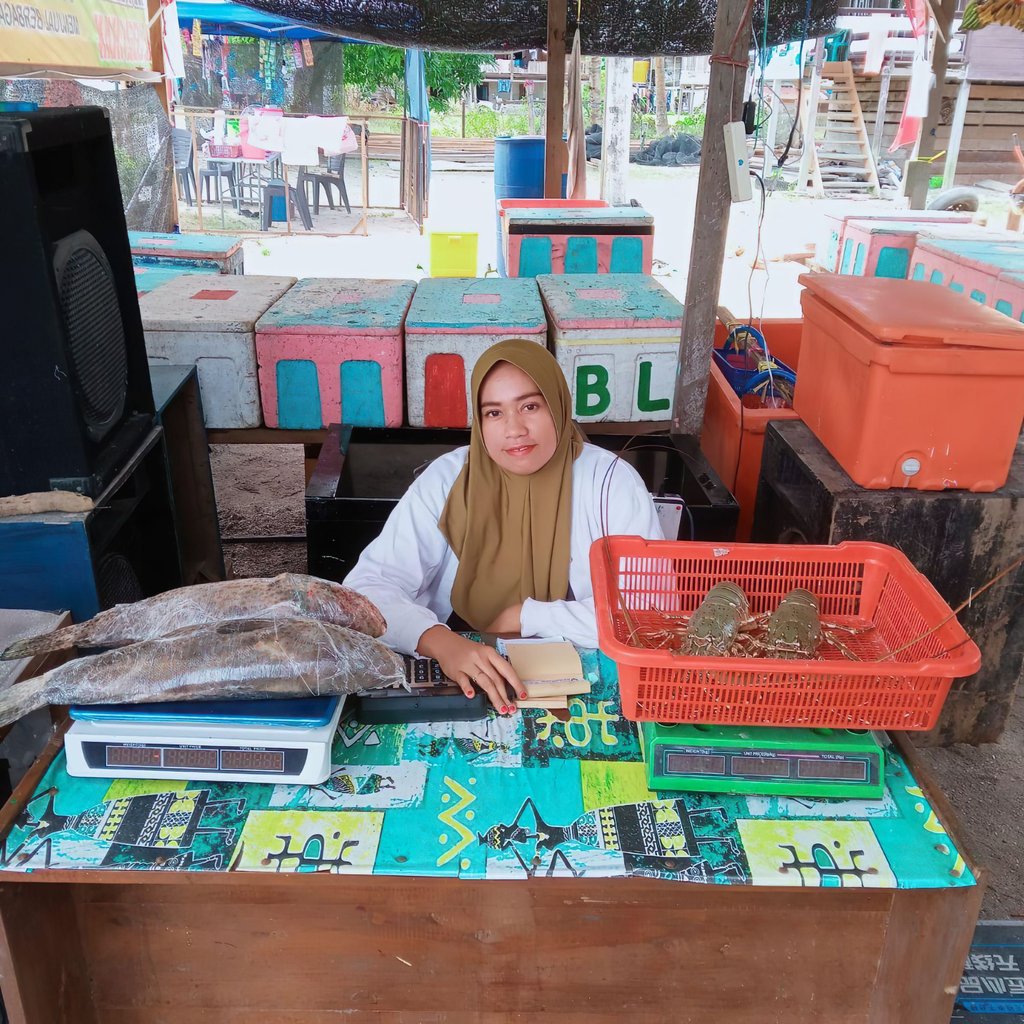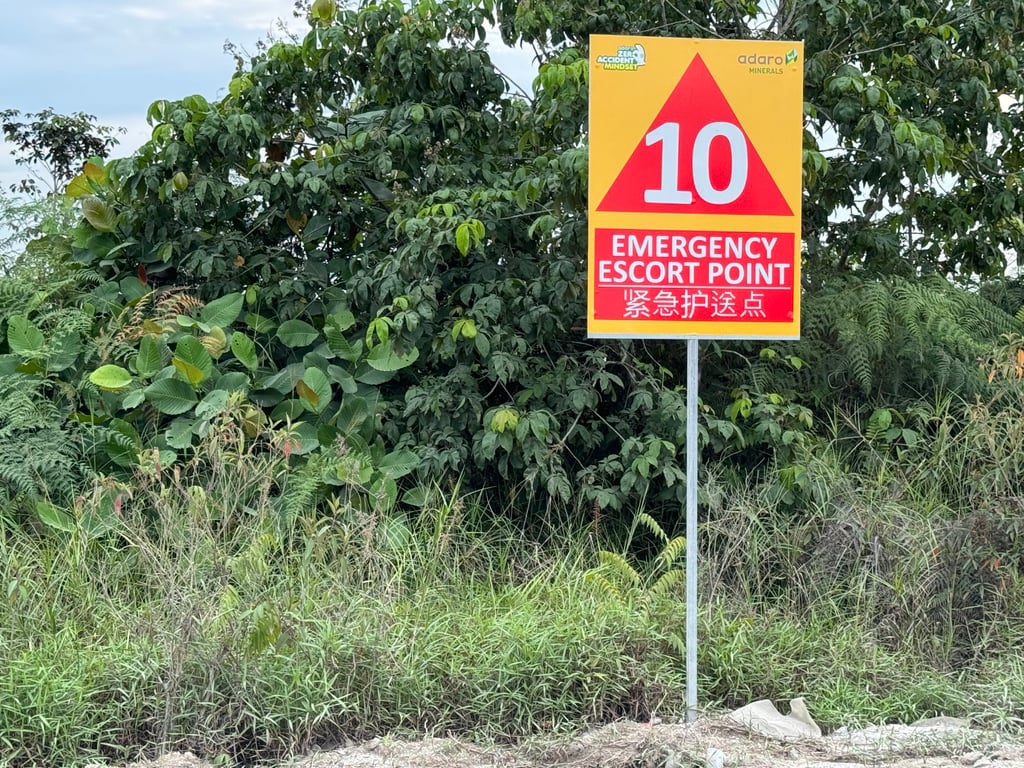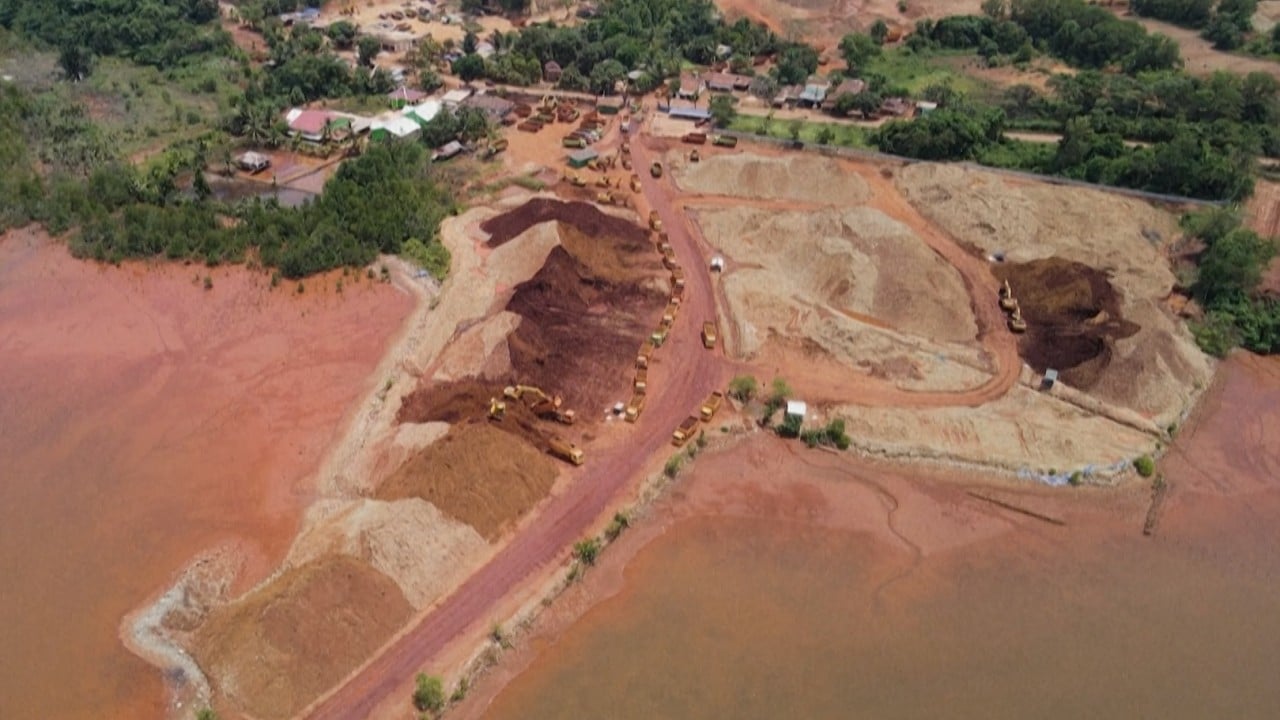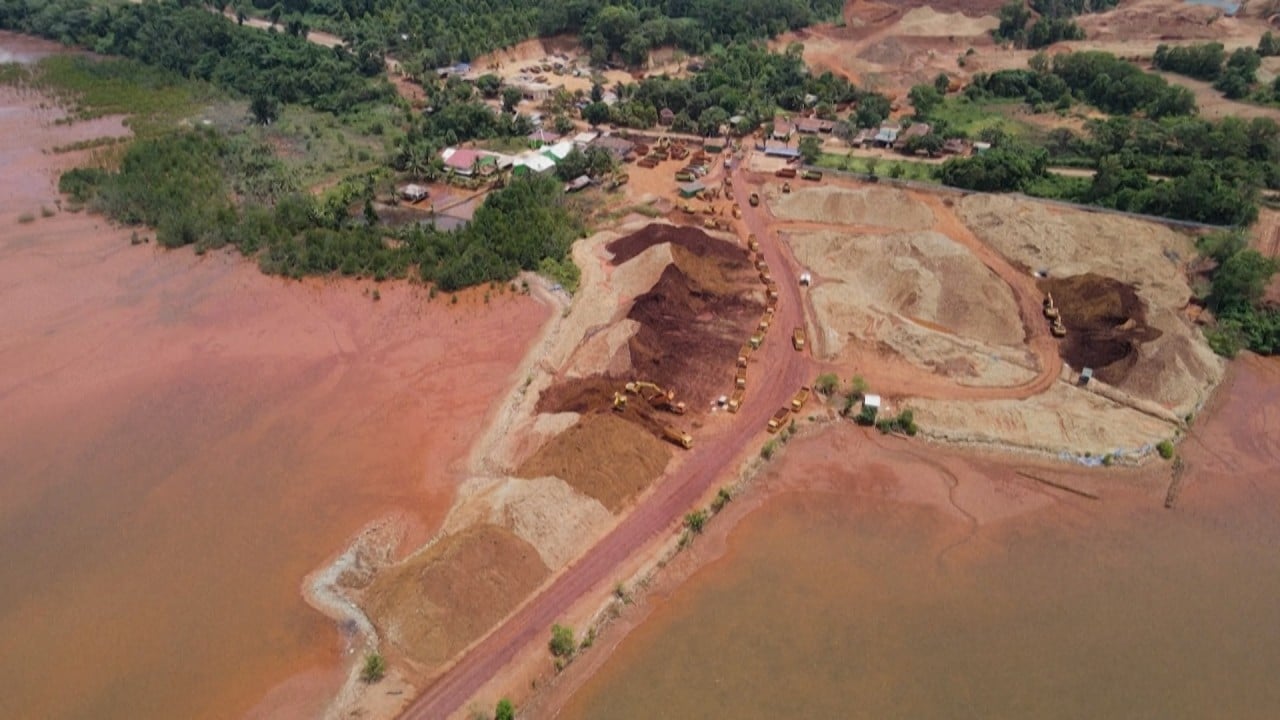A black double-cabin, four-wheel-drive pickup truck stopped in front of a fresh fish store in Kampung Baru, Mangkupadi village, in North Kalimantan, and three Chinese nationals and one Indonesian exited the vehicle. They went inside and spent more than 30 minutes inspecting and selecting fish before leaving.
Kaesi, the store owner, could not hide her smile after they left. It was not only because the group had spent almost 500,000 rupiah (US$30.70) but also that other Chinese customers had entered her store afterwards and spent even more, leaving her with a tidy profit.
“They don’t seem to worry about money. They can spend around 500,000 to 1 million rupiah each time they shop here,” the 35-year-old woman told This Week in Asia.
Kaesi’s customers are a few of the many Chinese workers who have come to her corner of Indonesia in connection with the Kalimantan Industrial Park Indonesia (KIPI) project, which began construction in December 2021.
They have brought with them new business opportunities but also controversy over their growing influence, with some locals complaining the project and its workers are being prioritised over their rights.

The Indonesian government declared KIPI would be the “largest green industrial park in the world”, with President Joko Widodo calling it the future of the country’s green energy industry, powered by clean energy and producing EV battery, petrochemicals, and aluminium.
KIPI has also been designated as one of Indonesia’s National Strategic Projects, which are considered crucial to the country’s development and given special mechanisms and regulations to accelerate their construction. The project will eventually cover 30,000 hectares (74,130 acres) of land in Mangkupadi and Tanah Kuning village on the eastern coast of North Kalimantan.
KIPI is also seen as a key project for Chinese-Indonesian relations and was specifically mentioned in a joint statement on deepening comprehensive strategic cooperation that was released following Widodo’s meeting with Chinese President Xi Jinping in Beijing last year.
When the project broke ground in 2021, Widodo estimated at least 100,000 workers would be required for KIPI’s construction and 60,000 for its operation. It is operated by a consortium consisting of companies from China, Indonesia and the United Arab Emirates.
Although official records about the companies involved with KIPI are difficult to find, the Nugal Institute, a think tank that has been collecting data about the project, said it could confirm two Chinese companies, Tsingshan Holding Group and Taikun Petrochemical, were involved with the industrial park, as well as two Chinese contractors, China State Construction Engineering Corporation and China Railway Engineering Consulting Group.
There is also no official data on the number of Chinese workers at KIPI either, but locals estimate them to number in the hundreds already.
Merah Johansyah, a coordinator of research and management at Nugal, said KIPI needed to be audited due to the lack of transparency surrounding it. He also cited a number of workers’ rights issues they had documented, including companies not giving workers proper contracts, making them vulnerable to underpayment and summary lay-offs.
“That’s why we urge this project to be audited. How can they let the Chinese enter this country freely and get paid more, while local labourers have no working contracts?” Merah told This Week in Asia.
Findings by Nugal coupled with testimony from residents in the area revealed incidents of illegal land seizures related to the project, with some locals claiming they were forced off their land or required to sell it for less than its value.
Yosran Efendi, a campaign manager at the non-profit Sustainable Forest Circle Association, said locals had not filed any official reports about this because they were too afraid to go to the police or go to court due to intimidation from the companies, which had threatened them with legal action if they refused to give up their land.
One interviewee, who wished to remain anonymous, told This Week in Asia that the companies had also placed spies in the community, making locals afraid to speak up about it.
“We are too afraid to protest, because it’s us against the government,” she said.
For that reason, Yosran said they would bring local representatives to Jakarta to meet the country’s Human Rights Commission (Komnas HAM) next month. “We will facilitate their meeting with Komnas HAM. We hope the commission can take action on this case,” Yosran said.
The Indonesian government has received numerous accusations of human rights violations in relation to National Strategic Projects such as KIPI. In June, Komnas HAM said it documented at least 1,675 cases of human rights abuses over the past three years related to National Strategic Projects, mainly over land disputes and environmental damage.
Lena Purnama Sari, head of the land agency of Bulungan Regency, denied that there had been any issues regarding land compensation for locals related to the project, insisting that KIPI had carried out everything legally.
“If there’s a problem, I believe it comes from someone who doesn’t have [valid rights to land] there. They’re just riding the wave to get some money,” Lena said.
No one at KIPI could provide a statement when This Week in Asia visited its office, as the managers were said to be out on business. A security head who gave his name as Wibowo said “prior notice” was needed for interviews and promised to forward any message to management. However, no response to interview requests had been received as of the time of publication.

Seizing opportunity
Kaesi, for her part, is happy about the project, saying she and her husband’s lives have been improved by the many Chinese workers who have become their regular customers.
Before KIPI came to town, Kaesi’s husband was a traditional fisherman who sold only a small amount of fish. Earlier this year, they began collecting fish from other villages and districts through a “trial-and-error” method to discover what appealed to Chinese taste buds.
It took them months to learn that the Chinese prefer largehead hairtail, moray, grouper, and even sea cucumbers – all species that find little favour among Indonesians.
Their fortune climbs every time the Chinese have special events, such as Lunar New Year or Yuan Xiao Festival, which is celebrated on the fifteenth day of the first month in the lunisolar Chinese calendar.
“That’s why we’re planning to put a Chinese calendar in our store so we know their special dates,” Kaesi said.

The wheel of fortune has also turned in favour of Muhammad Akbar. He operates a travel agency for those going in and out of Mangkupadi village, and many of the companies that bring Chinese workers in for the project use his services.
Akbar recounted a time when he took Chinese workers from Berau, East Kalimantan, to the project site, and they paid him 3 million rupiah for his service – 500,000 rupiah more than what was initially agreed. He said the bonus was due to the road conditions and they were grateful that the 35-year-old was willing to take the job.
“I asked why, and they said, ‘It’s OK, you deserve this,’” Akbar said.
The Chinese have influenced many aspects of life in Mangkupadi and Tanah Kuning. For example, since the project began, road markings have been revised to be in both Chinese and Indonesian languages.
Kaltara University, located in the regency’s capital, signed a memorandum of understanding with the company that operates KIPI and the government of Bulungan Regency to offer a Chinese-language intensive course in 2022. Graduates of the course will be recruited to work at the industrial estate.
However, not all locals have benefited from the influx of Chinese workers, with some expressing resentment over what they perceived as their special treatment.
Amran, a former fisherman who has lived in the area since the mid-90s, blamed the government for being unable to cultivate his land.
He said KIPI authorities had put a sign marking his land as part of the project and would take legal action against anyone carrying out activities in the area without their permission.
“If we want to send workers to Japan, they need to learn Japanese. So why do we need to learn Chinese when they come to our home? They should learn our language, not the other way around,” the 54-year-old said in frustration.



